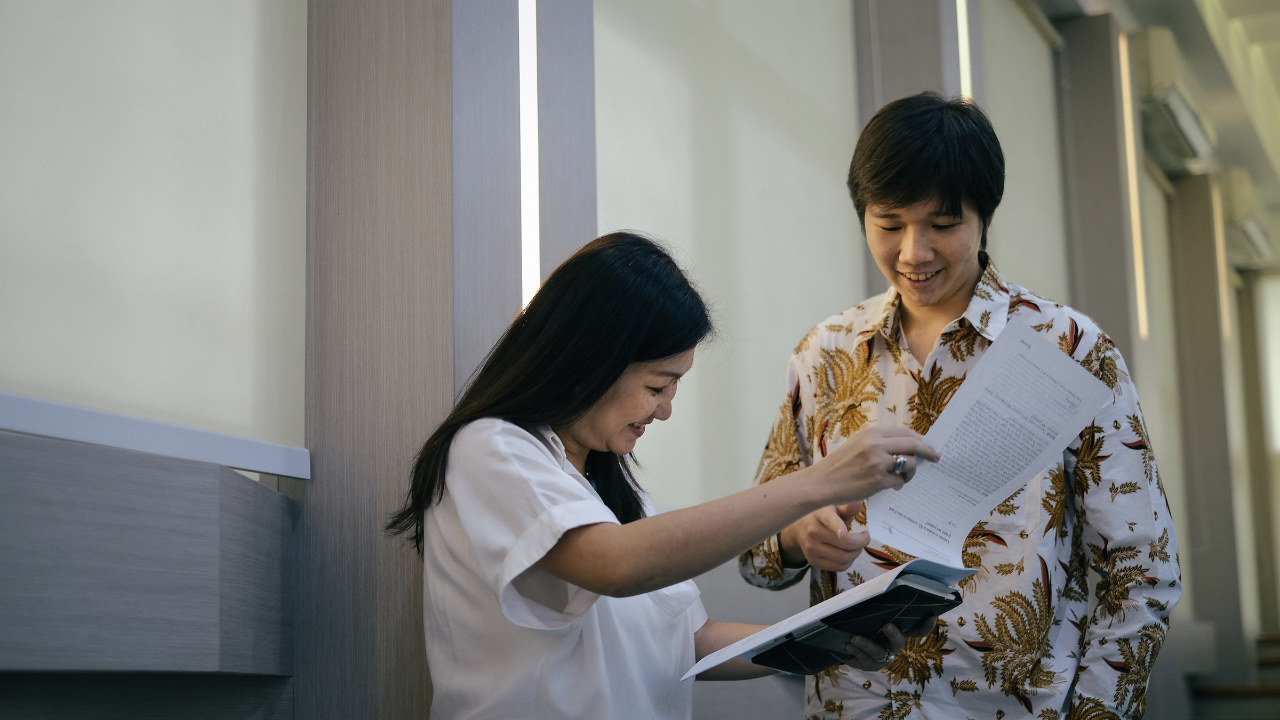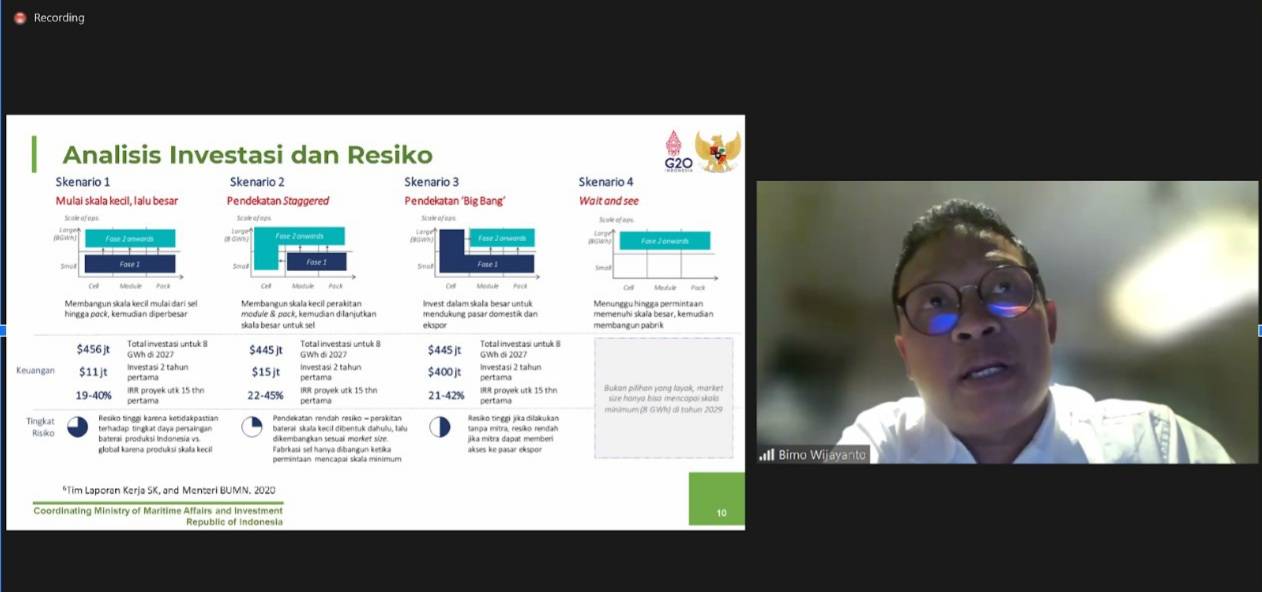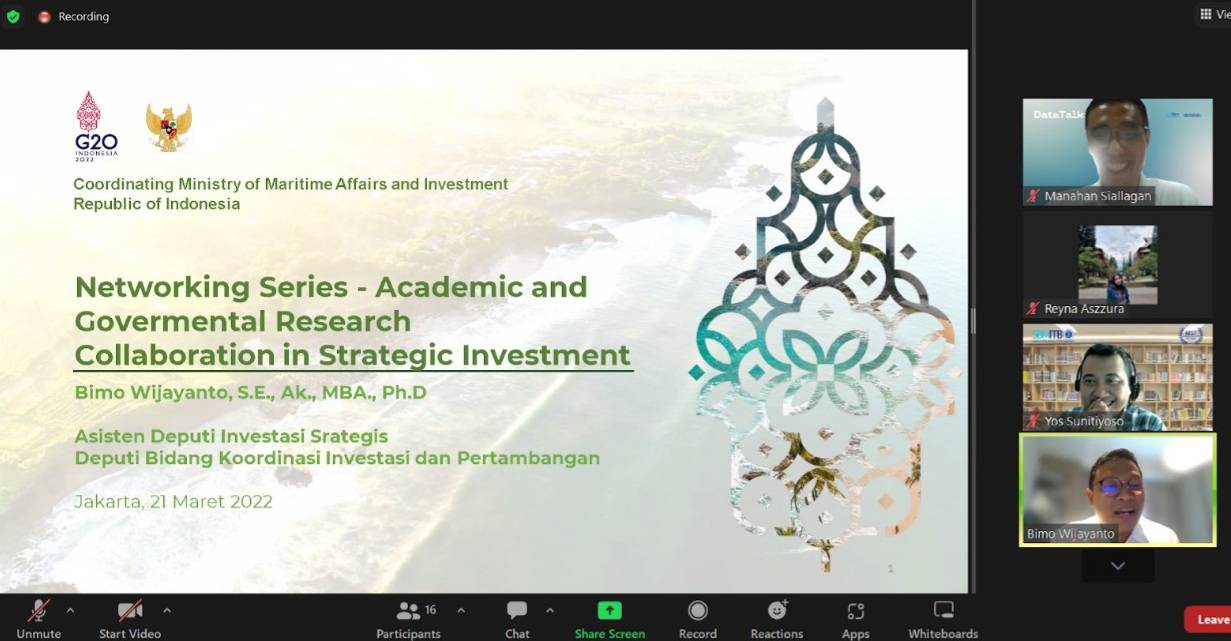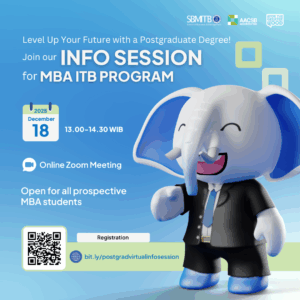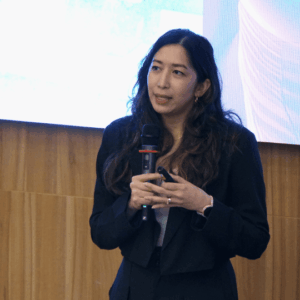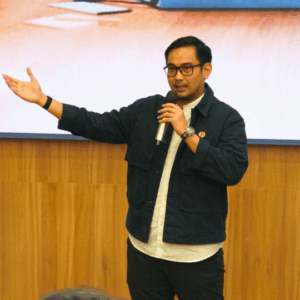SBM ITB’s Decision Making and Strategic Negotiation (DMSN) and the Coordinating Ministry for Maritime Affairs and Investment held a sharing session and discussion on Thursday (30/6/2022). Bimo Wijayanto, the Assistant Deputy for Strategic Investment Coordinating Ministry for Maritime Affairs and Investment, became a speaker at this event.
In the DMSN Talk, Bimo explained the collaboration carried out by the Coordinating Ministry for Maritime Affairs with the academics and researchers is to assist in the assessment and analysis of the implementation of the current policies. SBM ITB and PT Kazee Digital Indonesia are part of the collaboration.
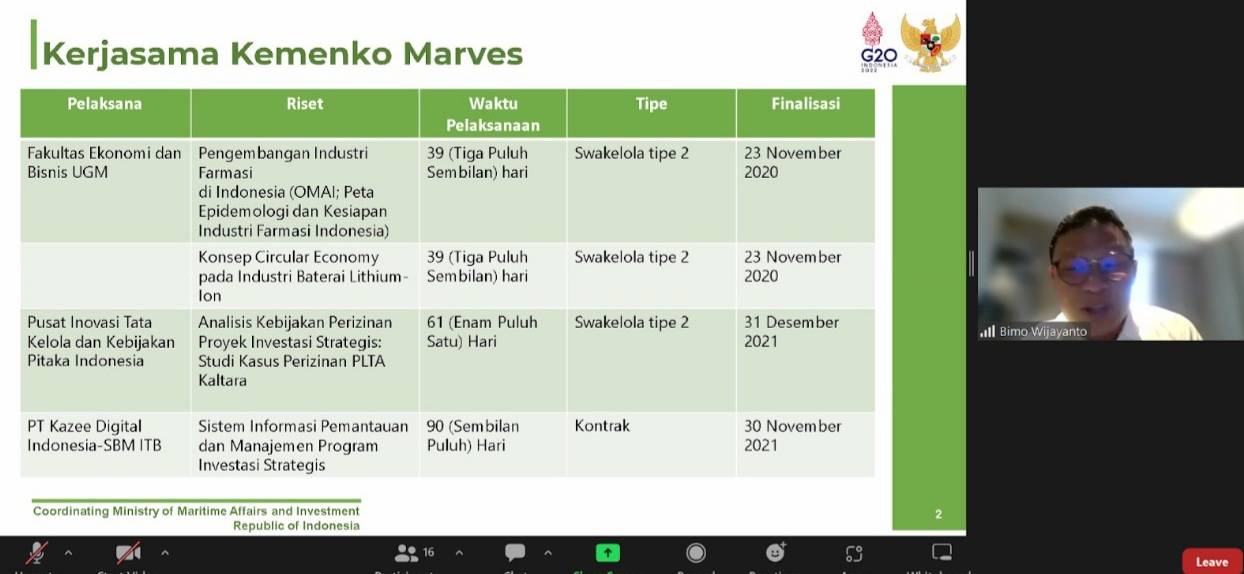
The collaboration between the Coordinating Ministry for Maritime Affairs with SBM ITB and PT Kazee Digital Indonesia has made it easier for the Coordinating Ministry to prepare new unplanned investments entering Indonesia. The information system dashboard created serves as an administrative tool and database and provides analysis of ongoing projects. “Thanks to this dashboard, the coordinating ministry no longer needs to manually check various requirements, and ongoing projects can be monitored easily,” said Bimo.
Other collaborations are carried out with FEB UGM in providing recommendations and evaluating existing policies for developing the pharmaceutical industry in Indonesia. Currently, Indonesia’s resources, including the state budget (APBN), regulatory framework and execution, or raw materials for medicines to treat diseases in Indonesia, remains limited. To overcome the existing problems, analysis, assessment, and policy recommendations are needed from academics and researchers.
For the circular economy problem in the lithium battery industry, the Coordinating Ministry and academia have found the potential for lithium battery recycling when the availability of nickel energy sources is running low. Lithium batteries can be recovered and recycled from electric motor vehicles, telecommunications equipment, IT hardware, and consumer electronic goods. However, regulations on Indonesian imports consider used raw materials as toxic, hazardous waste. Hence, in 2021, the Coordinating Ministry for Maritime Affairs and Investment discussed with the Ministry of Industry, Ministry of Trade, and Ministry of the Environment, to change the existing import regulations. It is done to provide an opportunity for investors so that economic value can be achieved.
Finally, collaboration with the Center for Innovation and Policy Governance (CIPG) in discussing the analysis of strategic investment policies regarding licensing in North Kalimantan. Often, investors who have claimed permits end up underperforming and not making progress on their projects. This, of course, hinders the opportunity for new willing investors. Not to mention the unintended consequences of creating a green energy source by sacrificing hundreds of thousands of hectares of forest area to build hydropower dams. These cases require further study.
Collaboration between the Coordinating Ministry for Maritime Affairs and academia has proven to assist the ministry in providing assessments, analyses, solutions, and recommendations for the policies implemented. If collaboration continues and develops in various fields, it can provide more positive impacts and benefits for various parties.
